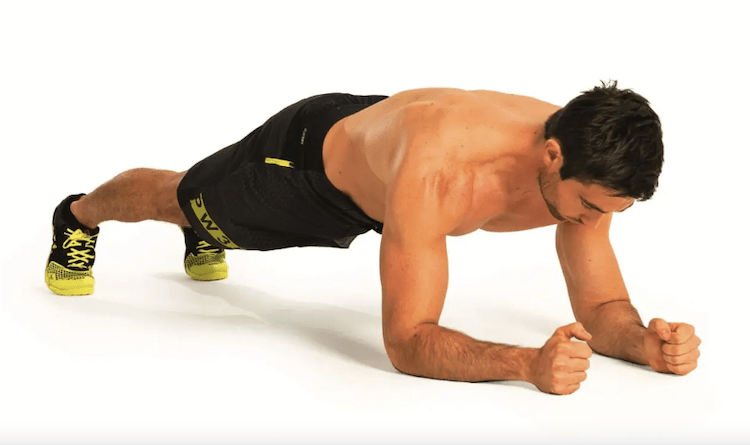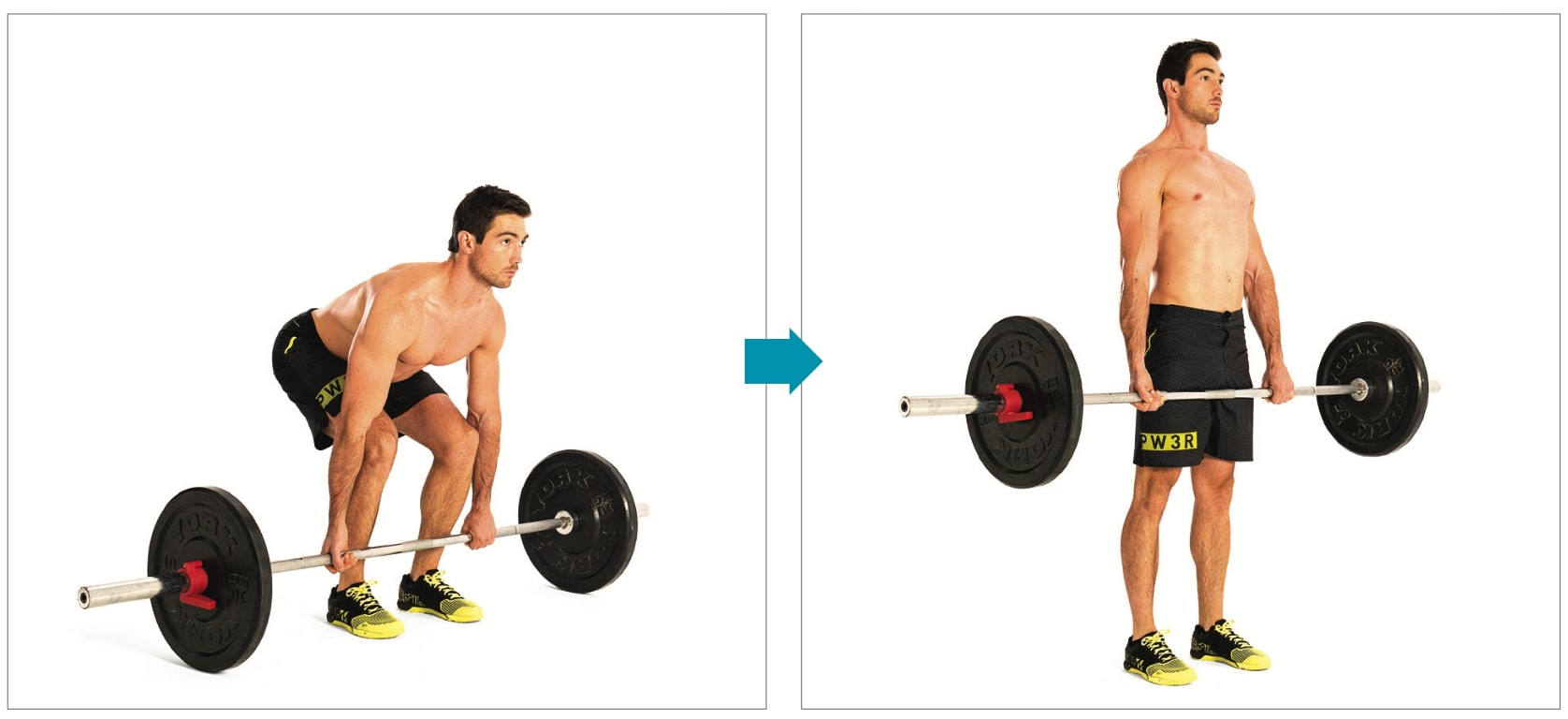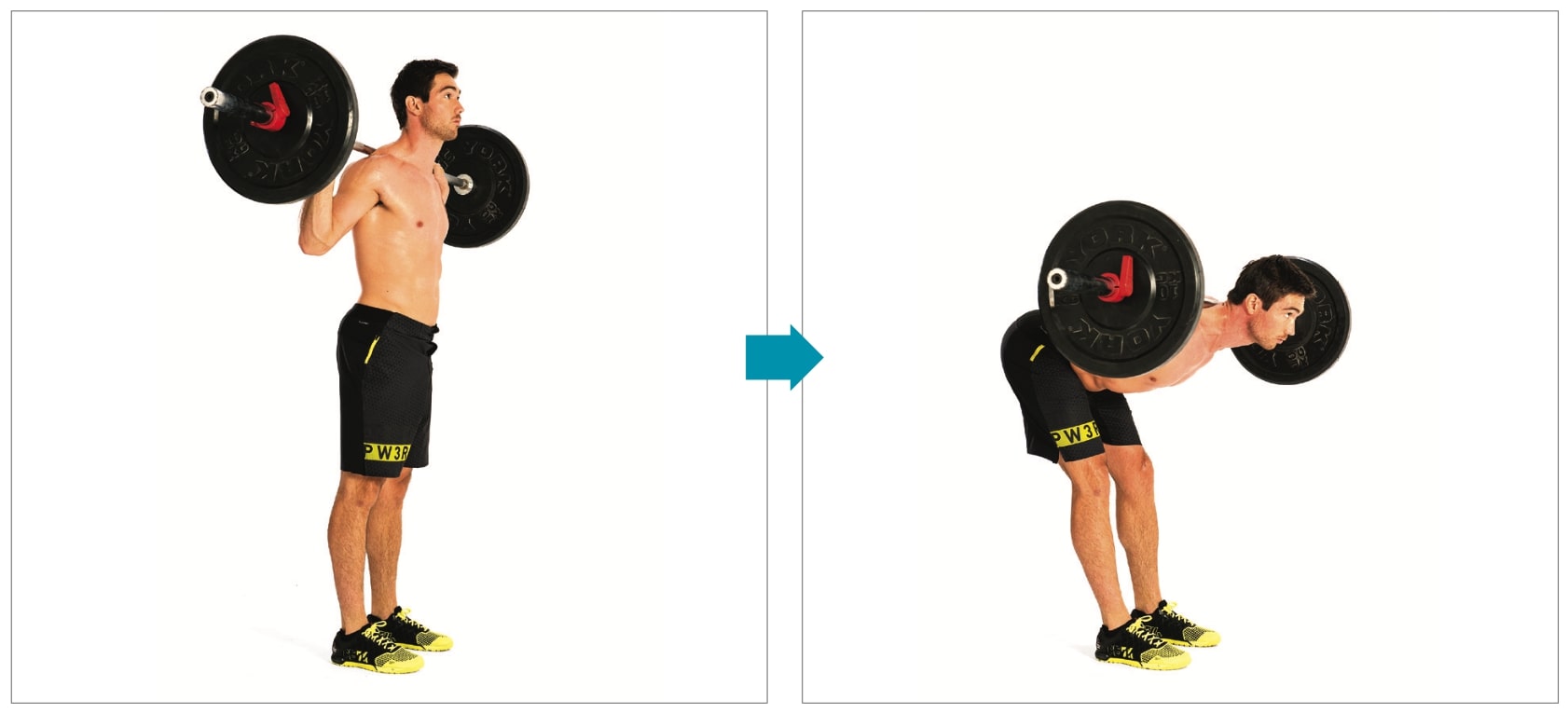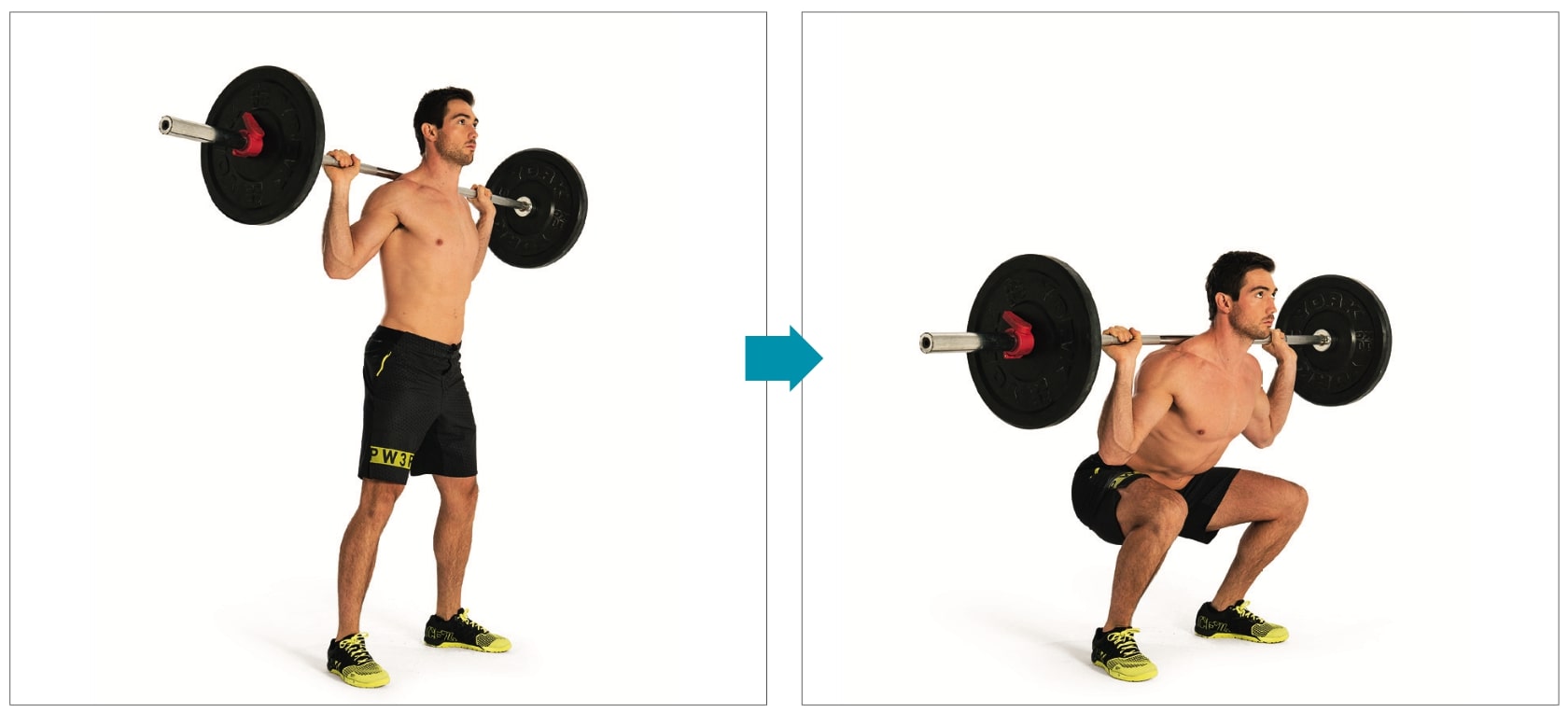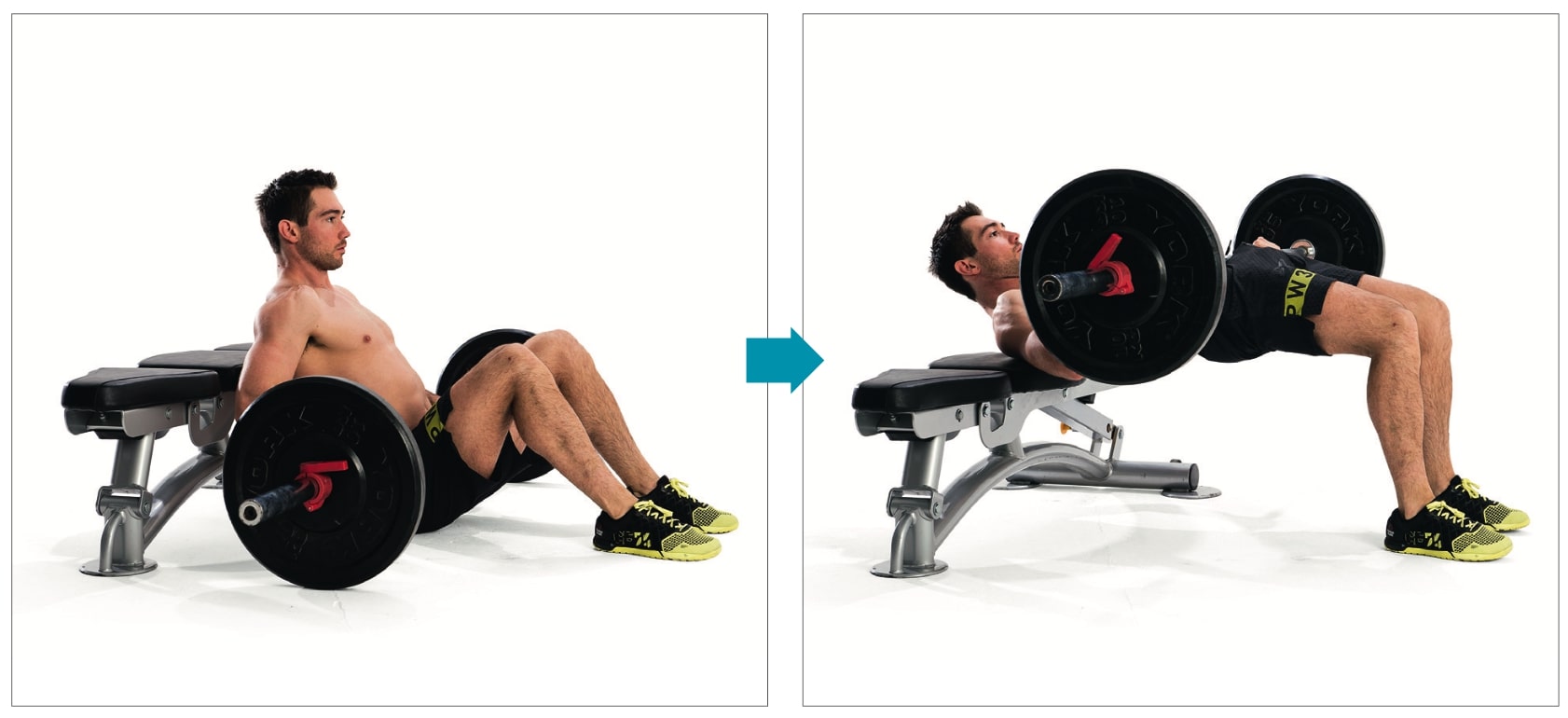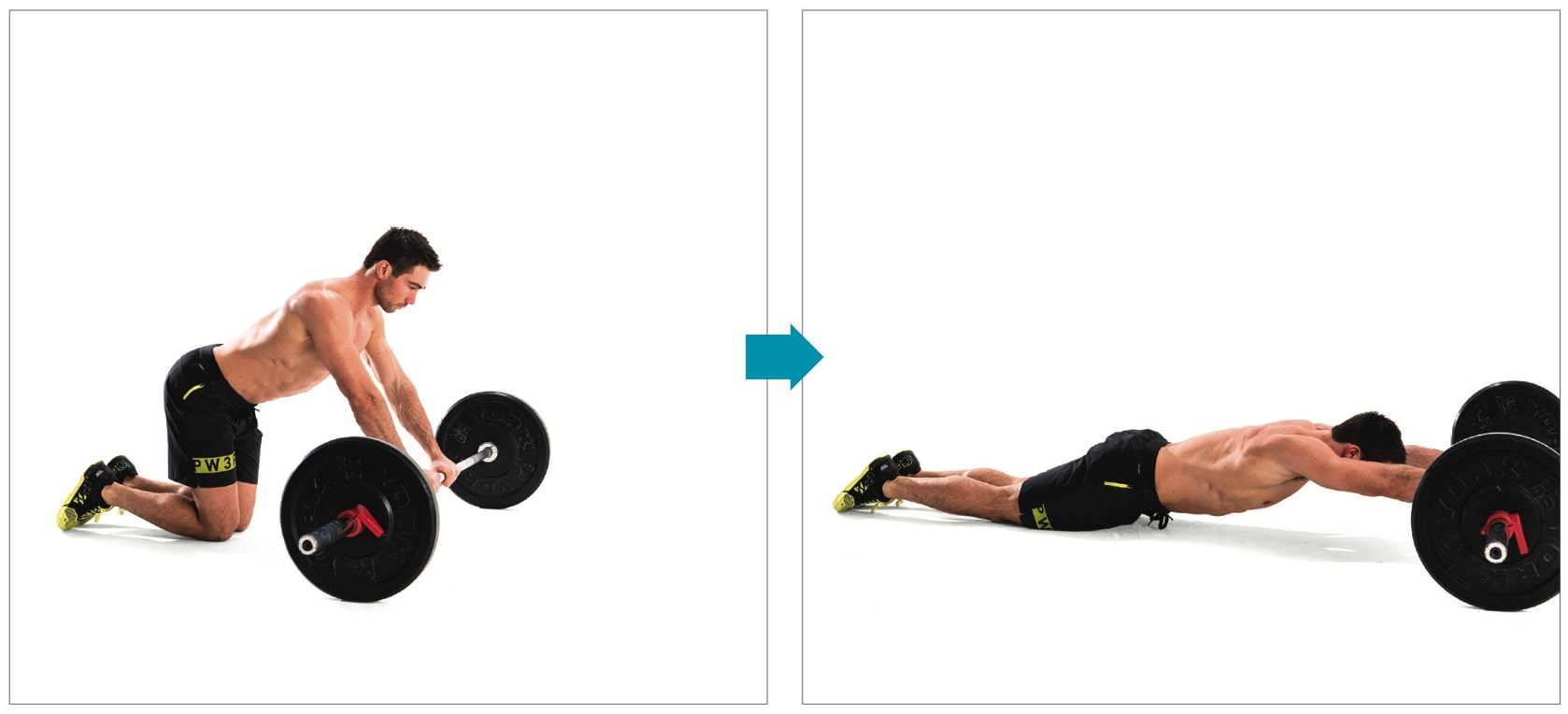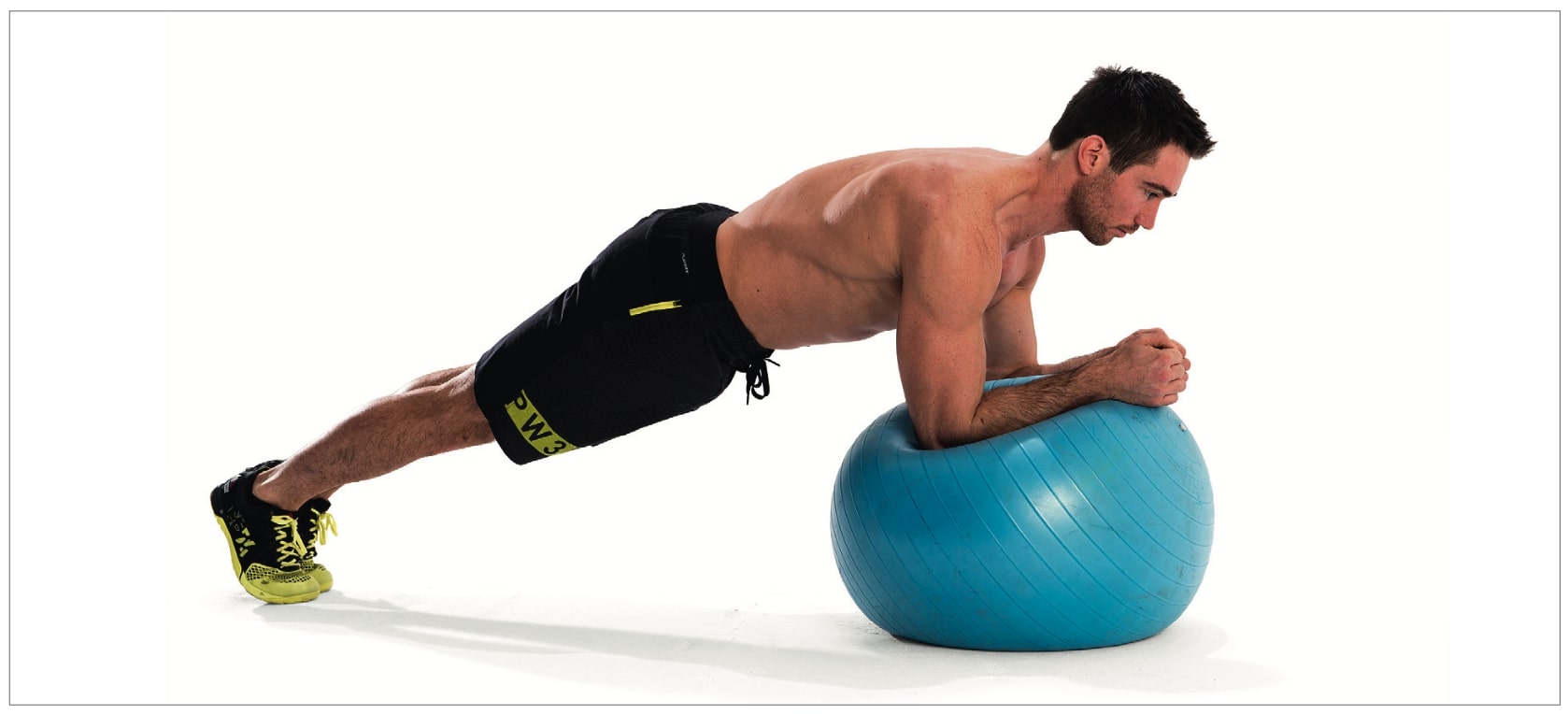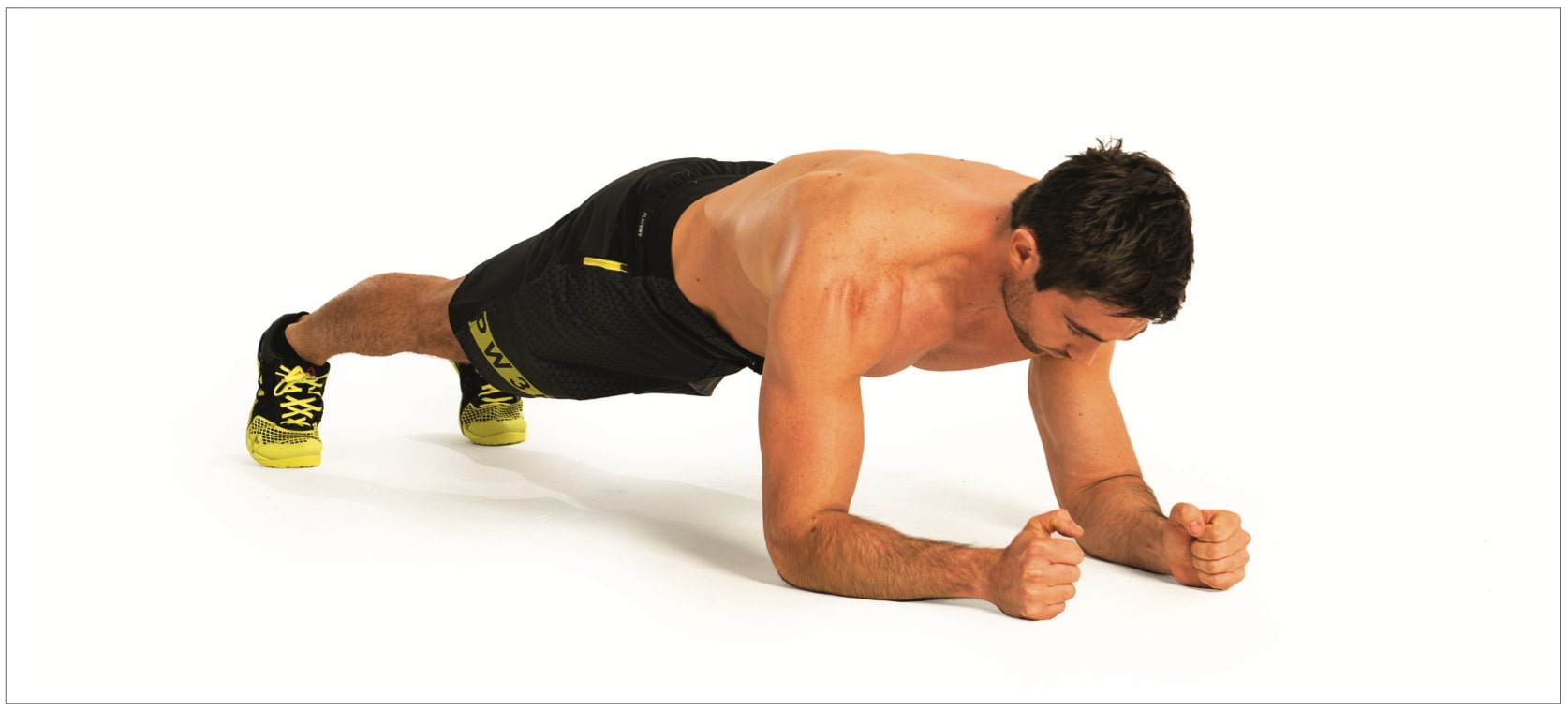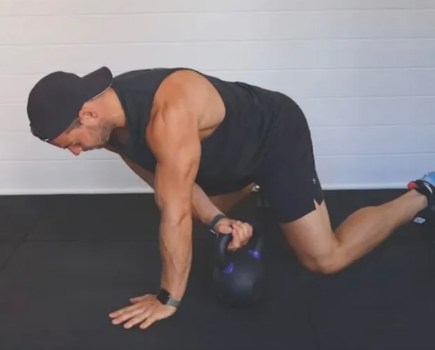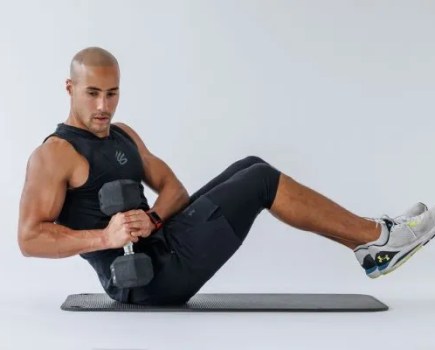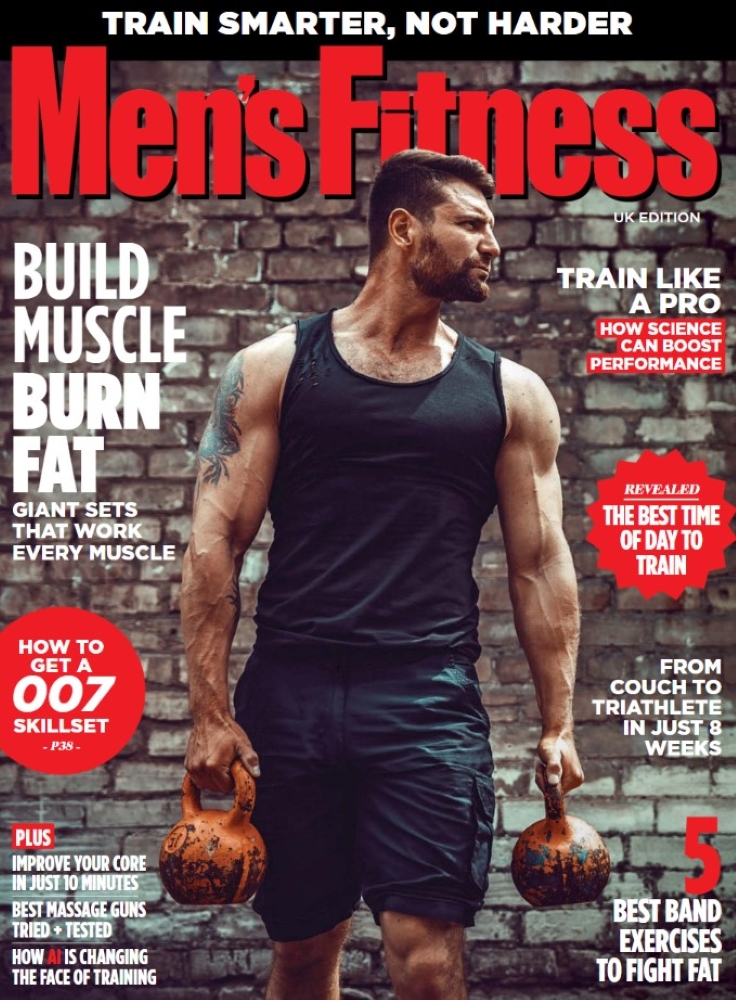This legs and abs workout targets your core as well as your legs to help you strengthen your lower body, torch body fat and sculpt your abs.
Your legs contain some of the biggest muscles of your body, so hitting them with compound (or multi-joint) moves through this superset legs and abs workout will target more muscle fibres while raising your heart rate so that your body taps into body fat stores for fuel and gets to work on shedding your spare tyre. It’s an ideal complement to resistance band exercises for legs.
How to perform this legs and abs workout
- Complete the a/b exercises as supersets
- Do 8-10 reps of each exercise (30-45 secs for the planks)
- Rest for 60 secs at the end of each superset
- Repeat each superset for a total of 4 sets
Exercises in this legs and abs workout
1a. Deadlift
1b. Good Morning
2a. Squat
2b. Glute bridge
3a. Barbell rollout
3b. Incline gym ball plank
4a. Hanging knee raise
4b. Plank
1a. Deadlift
How to do the deadlift
- Stand in front of a barbell. Squat down, keeping your chest up, and grasp the bar with an overhand grip
- Brace your core and push down through your heels to raise the bar off the ground
- Push your hips forward at the top
Why I like it
The deadlift is one of the few moves that deserves a place in any weights workout. Not only does it recruit multiple muscle groups in your upper and lower body – including your abs – it also gets your heart pumping for fat-loss benefits.
1b. Good Morning
How to do the good morning
- Stand tall, holding a light barbell across the back of your shoulders, feet shoulder-width apart
- With your core braced, hinge forwards slowly from the hips, as far as your hamstrings allow but not past horizontal
- Return to the start
Why I like it
This is an another often-neglected lift, but when done properly it works your entire posterior chain, which is the name of the group of muscles that run down the back of your body.
2a. Squat
How to do the squat
- Stand tall with a bar across the back of your shoulders
- Keeping your chest up and core braced, squat down as deep as you can
- Drive back up through your heels to return to the start
Why I like it
The squat, like the deadlift, works multiple muscle groups at once, especially your quads and glutes but also your core, which must work overtime to keep your upper body stable throughout every rep.
2b. Glute bridge
How to do the glute bridge
- Lie with your upper back supported on a bench, holding a barbell across the top of your thighs
- Thrust your hips up, squeeze and hold your glutes at the top, and then lower back to the start
Why I like it
This lift will recruit the biggest muscles in your body, your glutes, as it forces them to lift and control the weight, as well as the deep-lying muscles of your core and lower back.
3a. Barbell roll-out
How to do the barbell roll-out
- Kneel on the floor holding a barbell with both hands
- Roll the bar forward so you lower your torso, keeping your core braced
- Then use your abs muscles to return to the start
Why I like it
Don’t be fooled: this is a very difficult exercise that requires serious abdominal strength. But learning to do it effectively will build a stronger, more stable and more defined midsection.
3b. Incline gym ball plank
How to do the incline gym ball plank
- Start with your elbow on a gym ball with toes on the ground and your body in a straight line from head to heels
- Draw your belly button into your spine, keep your hips up and hold this position
Why I like it
This isometric – or static – hold exercise will fully engage your entire core musculature as these muscles work hard to keep your entire body straight and stable.
4a. Hanging knee raise
How to do the hanging knee raise
- Hang from a pull-up bar with your core braced and knees bent. Using your abs and keeping your knees together, raise your knees up towards your chin
- Hold this top position briefly, then slowly lower back to the start
Why I like it
This is a move that’s a lot harder to master than it looks, but doing so will take your abs training to a new level so that once you’ve shifted your spare tyre you have a brand new six-pack to showcase.
4b. Plank
How to do the plank
- With hands clasped and elbows on the ground, raise your hips to form a straight line from head to heels
- Keep your core braced and glutes engaged throughout
Why I like it
This classic isometric hold recruits all the major muscles of your abs and your deep-lying core, and keeping your glutes tensed will also work that muscle group as well as your lower back.
Related content:

